“The Ripples of Change will Spread” – by Toyosi Akerele-Ogunsiji.
Serial social entrepreneur and youth mentor, Toyosi Akerele-Ogunsiji, the founder of RISE Networks, a leading Nigerian youth development brand with focus on education and technology. From its beginnings as a youth magazine, RISE has grown to encompass the Rise National Youth Forum – a youth empowerment event held in about 20 universities across 23 states of Nigeria, and numerous programmes relating to job creation, leadership, child literacy and ICT for education.
In 2012, in response to high failure rates in national examinations, PASSNOWNOW was created, offering free teaching resources online in an accessible format. The eLearning Africa News Service caught up with Akerele-Ogunsiji to find out what drives her passion for innovation.
The inspiration behind RISE came to me as a second year student of Law at the University of Jos, and it was during this period that RISE magazine – Nigeria’s flagship youth magazine – was founded. I soon realised the discrepancy between what I felt was the magazine’s maximum reach – 100,000 people – and the total youth population of Nigeria – about 65 million – an experience I describe as jarring.
That was the instance I became convinced of the need to employ technology to drive even greater change that was badly much in need, and I haven’t stopped since nor ever felt the need to.
Africa’s youth population is often cited as an important asset, and it is in allowing this generation access to better education and technology that its full potential will be realised. Also, I earnestly believe that “no country should expect to make any significant economic progress if her youth – and a very large one at that – are not empowered for success and sustainable progress.”
This is the reason why “empowerment for success and sustainable progress” are recurrent themes in my declaration of what I believe Nigerians can achieve.
There is no reason why Nigeria cannot recreate China’s success in both size and scope given her immense population… why she couldn’t be a major technological hub seeing how she has within her territory a preponderance of the most successful tech startups in Africa; why she shouldn’t be able to turn out revenue running into the billions of dollars from her movie and music industry seeing how her actors and musicians are the toast of Africa and Diaspora Africans, and why competent Nigerian youths shouldn’t take up more roles that shape and define policies in Africa and the West Africa sub-region.
Against these are the negatives, struggles if you like, which I believe are shared by young people across sub-Saharan Africa: poor government, “failing, inadequate or completely non-existent infrastructure, and a general pervading air of incapacitation”.
Within Nigeria, I have identified three manifestations of these negatives that are holding the country back: an over-dependence on oil to the detriment of manufacturing, high youth unemployment and “a divergence between what is taught in schools and the skills that are required in the real world”
Empowering young people to overcome these challenges is at the core of my work. PASSNOWNOW for example, not only aims to help students pass their examinations, and teachers create robust teaching outlines; it also seeks to provide for students, “access to content on world history, current affairs, science and technology, health and personal safety… important information that will not only come in handy someday, but grooms them into knowledgeable, urbane students of life.”
My vision for the future of education in Nigeria is expressed broadly within three main goals: Access, Quality and Relevance. It will be a future, “where the children of poor parents, a pregnant school girl, and the street hawker who desire to have an education will feel no impediment whatsoever to achieving their goals”; where teachers nurture students’ “ability to ask hard, probing questions and encourage them to be unrelenting in seeking their answers, for therein lie the innovations of our collective future.”
Such a resplendent future will take some time to build, but the work of RISE is helping to bring those visions to fruition. By reaching out to Nigeria’s youth and strengthening them with a shared vision, she hopes to see how “like a stone dropped into a placid lake… the ripples of change will spread.”
I, Toyosi Akerele-Ogunsiji, one of the keynote speakers at the 2016 eLearning Africa Conference in Cairo, Egypt believe that eLearning Africa 2016 will give me an opportunity to further connect with a new set of change makers, problem solvers, tech enthusiasts and stakeholders within the Education Technology Ecosystem with whom I can exchange ideas and extend the impact of my work.
To find out more about eLearning Africa 2016, its keynote speakers and programmes, visit http://www.elearning-africa.com/

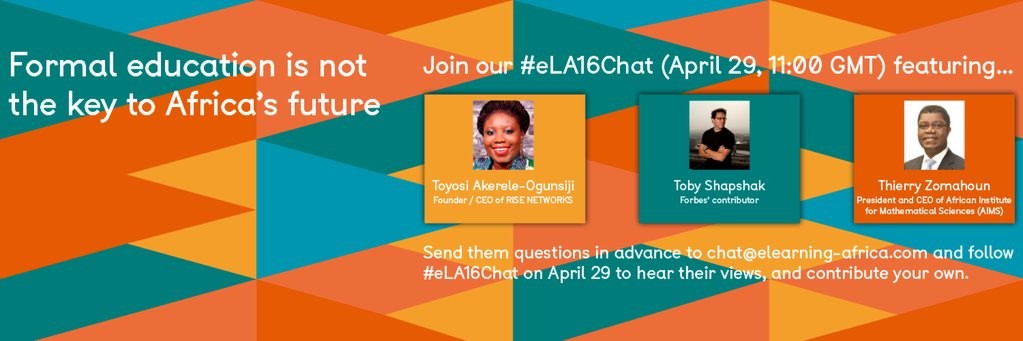
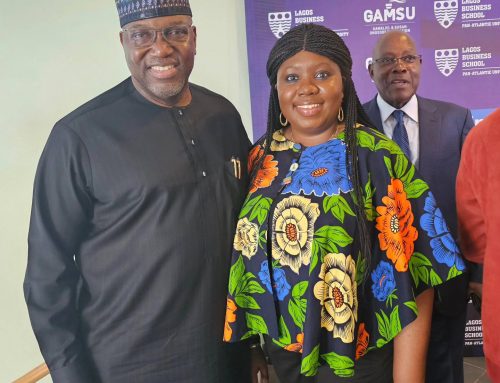
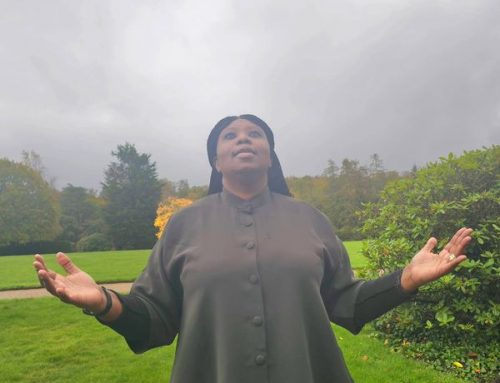
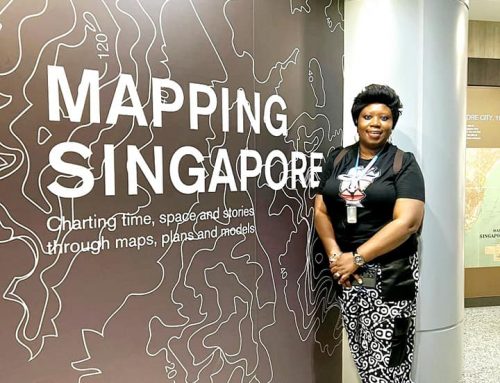
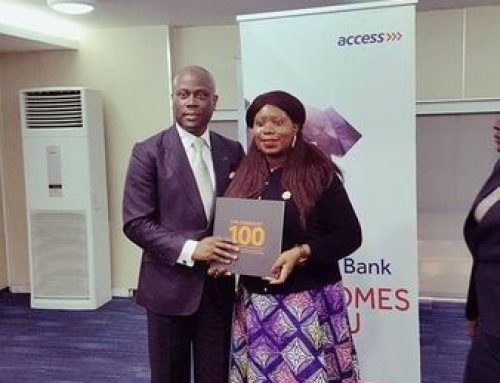
Leave a Reply